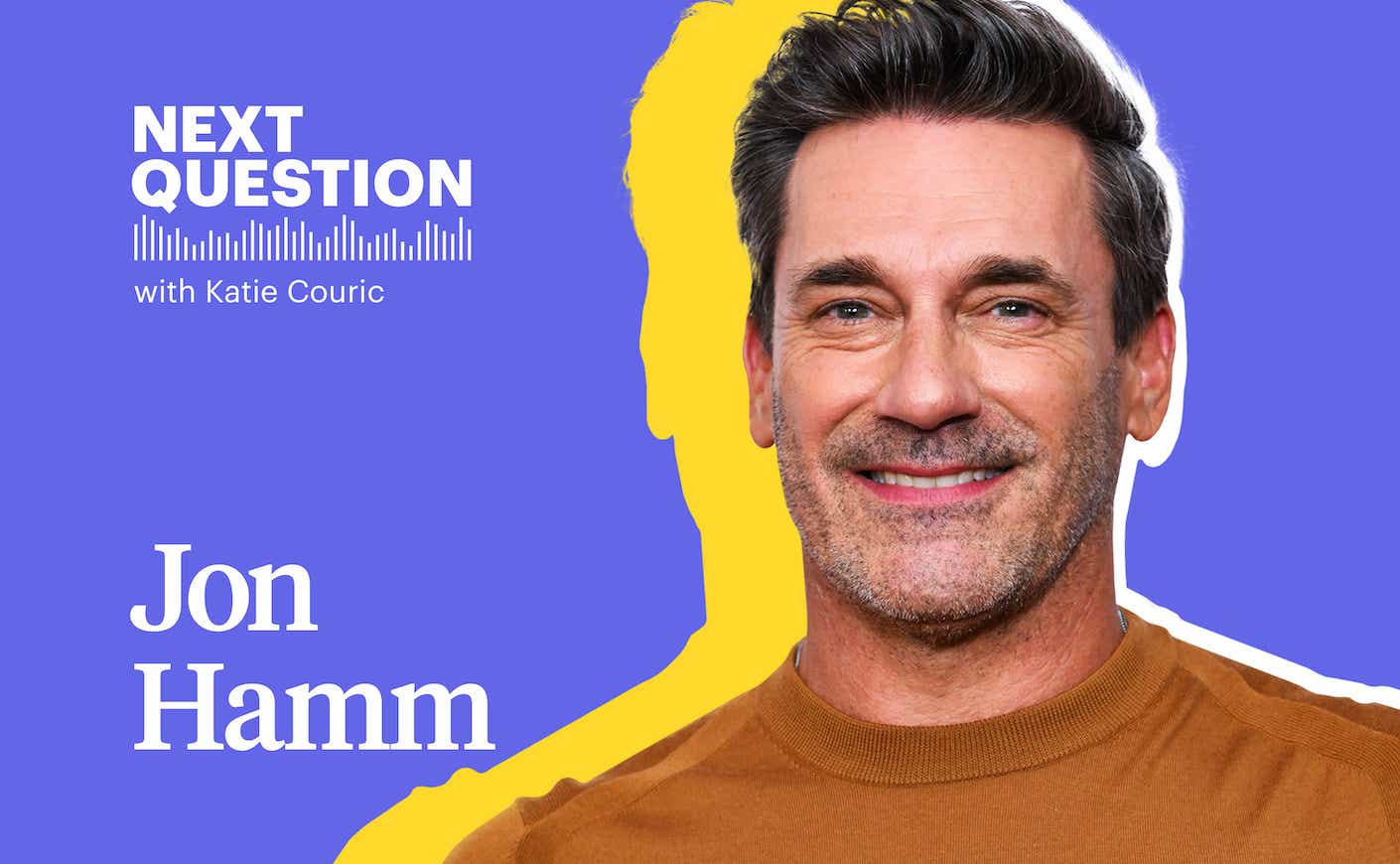Actor Jon Hamm is most famous for his portrayal of Mad Men’s Don Draper: A taciturn, stoic, 60’s ad man who practically embodies toxic masculinity. Hamm, on the other hand, has bucked that traditional tendency towards repressing feelings and refusing to communicate: In a recent episode of Katie’s podcast, he opens up about losing his mother to colon cancer at age 10 — and losing his father just a decade later. Hamm talks about the lack of mental health resources available when his parents died and how he worked to overcome feelings of abandonment. Listen to the podcast to hear how Hamm processes loss in therapy, how he handled the pandemic, and whether or not he wants to start a family of his own.
Katie Couric: You were only 10 when you lost your mom, and 20 when you lost [your father]. I've been reading a lot about generational trauma and how that term has expanded to enduring a significant loss as a child, and the impact that has on you.
Jon Hamm: You're literally a different human being. You're made differently at that age than you are as an adult — your neural pathways are wide open when you're younger. All of these things are still working themselves out. That kind of traumatic experience doesn't have to be abuse. My mother died of colon cancer. That’s a big part of your existence, and it's very much a part of mine.
Your mom must have been really young. 35 years old?
Yes — 35 years old. It wasn’t anywhere near the time for her to be screened or anything like that. It was an outlier, like cancer is sometimes.
Do you remember much about your mom's illness?
I remember a lot of it. I remember how sudden it was. I remember there being my mom one day and then not my mom one day. Spending so much time in a hospital at that young age was very strange to me; my only experience with hospitals was with old people at that point. Not mom, who was 35 years old. It was very jarring. By the end, my mother’s cancer had really spread throughout her whole abdomen and all of her major organs. She was a shell of herself. There wasn't any support network in the early eighties. Mental health was what they called “crazy people.” If you needed some mental health work, that meant you were going to the rubber room.
Then it was just you and your dad.
It was me and my dad. I had two half sisters who both lost their mother very young as well. But the vocabulary certainly wasn't there. People didn't know how to talk about that. I was given a book that said what to do with when a parent dies, written by some psychologist or social worker. But that's not really what you need. You need to talk and have people explain and understand. Your first introduction, in many ways, to permanence is death. For most people it's losing their dog or their grandmother.
I don't remember so much about the aftermath. The next couple of years are very foggy for me.
Your dad probably had a hard time dealing.
His first wife passed away very suddenly as well. He had no vocabulary, no infrastructure to help, and no mental health checks. None of that.
Your dad died when you were 20.
It was in college. That's when I really leaned on my community. My sister said, “You need to see a professional. You need to talk to somebody and you need to get back on your feet.” Part of that was getting a job, recommitting to school, and understanding in some way what was going on. It was a gut check.
You’ve really started delving into the impact of your parents’ deaths. What are you learning about yourself through therapy that has helped you in forging your relationships today?
When you lose parents at a young age, the loss is processed as abandonment.
You have to almost rewire your brain.
Kids very famously can find their way through any situation, but it doesn't necessarily mean that that's always good for them. Surviving something is not overcoming.
Do you think you'll ever have kids? I'm just curious.
I've never had a life plan. I never really had a roadmap. Everything was always so unstable. Now that things have stabilized and I'm comfortable in my career, I would love to have kids. I think it would be great.








